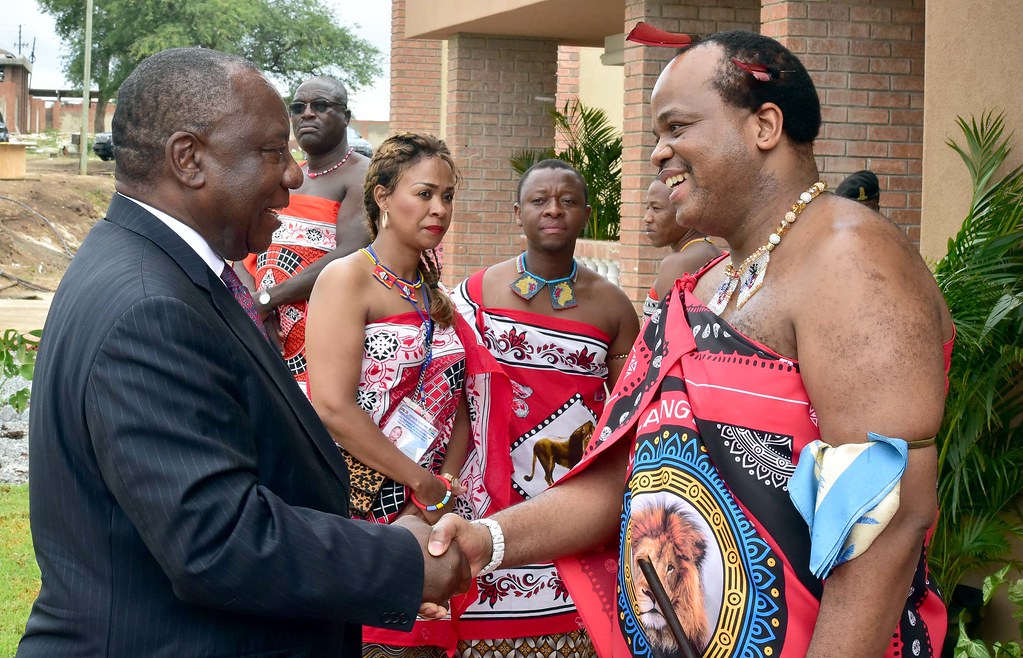Eswatini Government Faces Court Challenge Over US Deportation Case
By Mantasha - Aug 25, 2025
A group of NGOs is challenging Eswatini's decision to accept deported individuals from the US, arguing that the deal violates human rights. The case highlights the geopolitical implications of deportation agreements and could set a precedent for similar disputes. The outcome may influence governments' deportation practices and prioritize human rights over political concerns, with potential economic and diplomatic ramifications. The legal battle underscores the complex interplay between immigration policies, international relations, and individual rights on a global scale.

Eswanrtini via Flickr
A group of ,[object Object], is taking legal action against the ,[object Object], over its decision to accept five deported individuals from the ,[object Object],. The NGOs assert that the deal struck between Eswatini and the US was unconstitutional and infringed upon the human rights of the deported men. The individuals in question hail from Vietnam, Jamaica, Laos, Yemen, and Cuba, with US authorities labeling them as dangerous criminals. The controversial ,[object Object], took place in July, amidst the Trump administration's aggressive stance on removing migrants and asylum seekers.
The challenge mounted by the NGOs shines a light on the geopolitical repercussions of such ,deportation, agreements. Eswatini's decision to accept the deportees has sparked outrage and raised concerns about the country's adherence to international human rights laws. The case underscores the intricate intersection of immigration policies, international relations, and individual rights. Legal experts suggest that the court battle could set a precedent for similar cases involving the ,deportation, of individuals deemed undesirable by powerful nations.
The outcome of this court challenge could have profound economic implications for Eswatini and other countries that often find themselves entangled in global migration disputes. If the court rules in favor of the NGOs, it may compel governments to rethink their ,deportation, practices and prioritize human rights considerations over political expediency. Conversely, a ruling favoring the government could embolden nations to continue executing similar ,deportation, agreements, potentially straining diplomatic relations and inviting further legal battles. As the case unfolds, it exposes the delicate balance between sovereignty, security, and fundamental rights on the global stage.
Such a ruling could also encourage civil society groups across the globe to pursue similar legal avenues, amplifying the role of judicial systems in shaping immigration policy. Conversely, a ruling favoring the government could embolden nations to continue executing similar ,deportation, agreements, potentially straining diplomatic relations and inviting further legal battles. It may also signal a troubling shift toward the normalization of opaque bilateral deals that bypass public scrutiny and legal safeguards. As the case unfolds, it exposes the delicate balance between sovereignty, security, and fundamental rights on the global stage, and raises urgent questions about accountability in international cooperation.


